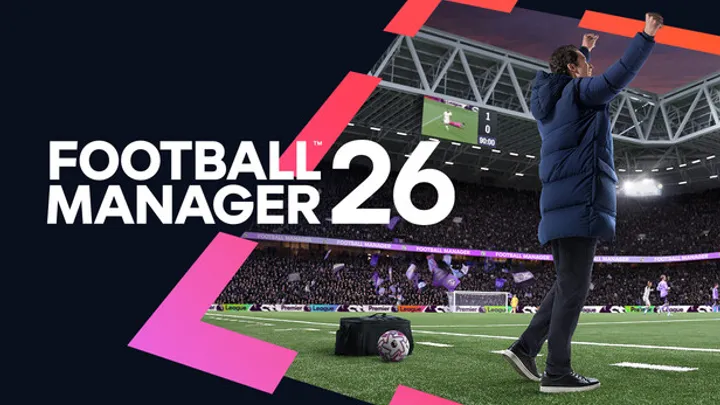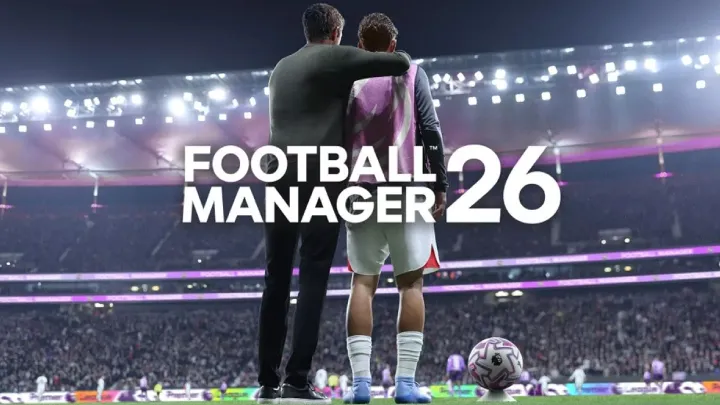Football Manager 26 is one of the most detailed and immersive football management simulations ever released. The game challenges players to think like a real manager, make smarter decisions, and implement long term planning across multiple aspects of club development. Whether you are new to the series or returning after years of experience, learning how to navigate the expanded systems of FM26 will significantly improve your performance.
This guide will walk you through the complete journey of how to play Football Manager 26 effectively. From squad building to tactics, training, finances, and matchday strategy, each section follows a logical progression. By the end, you will understand how to build a successful club and maintain dominance season after season.
How to Start Your Football Manager 26 Career Effectively

Starting your FM26 career correctly sets the foundation for future success. Begin by choosing the league setup that fits your desired experience. A larger database offers more player options but requires stronger computer performance, while a smaller league structure provides simplicity and focus. Consider whether you want a top tier club with high expectations or a lower league team with a long term challenge.
Once the save is created, adjust staff responsibilities. Football Manager 26 allows you to delegate tasks more effectively, giving you more control or granting automation depending on your managerial style. Newer players often benefit from letting staff handle training sessions or scouting assignments to avoid being overwhelmed.
Finally, explore the interface and familiarize yourself with new updates, such as enhanced data visuals, tactical presets, and streamlined menus. Understanding the layout early helps reduce mistakes and improves decision making.
How to Build an Effective Squad in FM26
Your squad determines how far you can progress. Start by analyzing your players one by one, focusing on role suitability rather than general ability. Football Manager 26 emphasizes specialized roles more than ever, so a player with high attributes may still perform poorly if used incorrectly. Look at technical, mental, and physical attributes while comparing them with your tactical plan.
Next, evaluate squad depth. A balanced team needs at least two competent players for each position. Injuries, suspensions, and fatigue will impact your lineup throughout the season. FM26 introduces more dynamic physical condition modeling, so rotational depth is essential for keeping players healthy.
Use the squad planner to map out future needs. This tool helps you anticipate when older players may decline, when contracts expire, and which prospects are ready for promotion. Planning ahead ensures your squad stays competitive over multiple seasons.
How to Use Scouting and Recruitment
Scouting and recruitment are critical to long term success. Begin by assigning scouts to regions aligned with your club budget. Smaller clubs benefit from exploring nearby countries, while top tier clubs can afford global scouting coverage. FM26 includes deeper scouting data, allowing you to identify undervalued talents more easily.
Recruitment meetings give you a structured way to assess potential signings. Pay attention not only to attributes but also personality, wage expectations, and compatibility with your tactical roles. A player with poor professionalism or determination may fail to develop properly.
You should also build shortlists for long term targets. Tracking young talents over several seasons helps you identify the best time to approach them. Successful recruitment requires patience, strategic timing, and balancing finances carefully.
How to Develop Youth Talent
Youth development is essential for sustainability. The first step is improving youth facilities, training grounds, and coaching staff. FM26 makes facility quality more impactful than before, directly affecting growth rates and attribute progression. Strong youth coaches accelerate development and improve player consistency.
Next, create individual training programs for young talents. Specify role training that enhances the attributes they need most. Monitor progress through monthly reports and adjust focus based on performance. Young players need opportunities, so loaning them out or integrating them gradually into the first team is crucial.
Finally, pay attention to player personalities. Mentoring groups help shape work ethic, professionalism, and ambition. Good personality traits often determine whether a young player reaches their full potential.
How to Build a Winning Tactic
Tactics are at the heart of Football Manager 26. Begin by choosing a formation that fits your squad strengths rather than forcing players into a system they are not suited for. Evaluate how well players match specific roles such as inverted winger, ball winning midfielder, or overlapping fullback.
Once the foundation is set, adjust team instructions. Control tempo, defensive line, pressing intensity, and transition behavior according to the strengths of your squad. FM26 enhances tactical responsiveness, meaning your team reacts more intelligently to instructions.
After each match, review data analytics to understand what worked and what did not. The game provides detailed metrics including xG, positioning maps, and pass networks. A good tactic evolves with time and adapts to upcoming opponents.
How to Handle Training and Match Preparation

Training determines player development, tactical familiarity, and match sharpness. FM26 offers weekly schedules that combine physical, tactical, and technical training. Begin each week by assessing player fitness levels. Adjust workloads to prevent injuries, especially during congested fixtures.
Match preparation sessions focus on tactical cohesion and learning opposition tendencies. Use sessions like attacking movement, defensive shape, or transition play based on the upcoming opponent. Strong preparation leads to better execution on matchday.
Rotation is vital for avoiding fatigue. Overworked players underperform and risk long term injuries. Monitor condition levels and adjust training intensity accordingly.
How to Manage Finances and Club Growth
Finance management is essential for keeping your club healthy. Start by reviewing your wage budget. Avoid overspending on underperforming players and try to maintain a structured wage hierarchy. Football Manager 26 introduces more realistic financial fluctuations, making responsible budgeting even more important.
Invest in infrastructure such as training grounds, youth facilities, and scouting networks. These upgrades improve performance and increase long term value. Sponsorship deals, competition earnings, and player sales also play major roles in financial stability.
A well managed club avoids unnecessary loans and focuses on sustainable spending. Planning ahead prevents financial crises and supports competitive growth for many seasons.
How to Manage Player Morale, Media, and Relationships
Morale influences player performance more than many managers realize. FM26 expands interaction options, letting you address concerns through private talks, promises, and praise. Keeping morale high ensures consistency on the pitch.
Media handling is a delicate balance. Responding confidently without provoking controversy helps maintain a positive reputation. Media comments also affect player morale, so be mindful when discussing individuals.
Strong relationships create a cohesive squad. Treat players fairly, reward good performances, and manage expectations. A well managed dressing room performs better, avoids conflicts, and supports long term success.
How to Approach Matchday Strategy
Matchday requires careful planning and in game decision making. Begin by reviewing the opposition analysis report. Adjust your lineup and instructions to exploit weaknesses or counter their strengths.
During the match, observe key stats such as possession, pass completion, and player body language. Make substitutions based on tactical needs, fatigue, or poor performance. FM26s realistic match engine rewards managers who react quickly and intelligently.
After the match, review the performance data. Identify issues, adjust training, and refine tactics. Consistent analysis builds long term improvement.
How to Achieve Long Term Success in FM26
Long term success requires constant adaptation. Refresh your squad regularly by integrating youth prospects and targeting young signings who fit your system. Avoid relying solely on aging stars who may decline rapidly.
Diversify your tactics across seasons. Opponents adapt to your strategies, so updating formations and instructions keeps your team unpredictable.
Finally, invest steadily in club infrastructure. Training grounds, youth facilities, and data analysis upgrades create a strong foundation. Sustained development ensures your club remains competitive for many years.
Conclusion
Football Manager 26 offers unprecedented depth and strategic freedom. By mastering squad building, scouting, youth development, tactics, training, finances, and matchday strategy, you can create a dominant club capable of long term success. The key is consistent evaluation, smart planning, and adaptability. With patience and the right approach, every season becomes an opportunity to build your legacy.
Summary
Complete how to guide for Football Manager 26 covering tactics, transfers, youth development, finances, training, and long term club success.

















